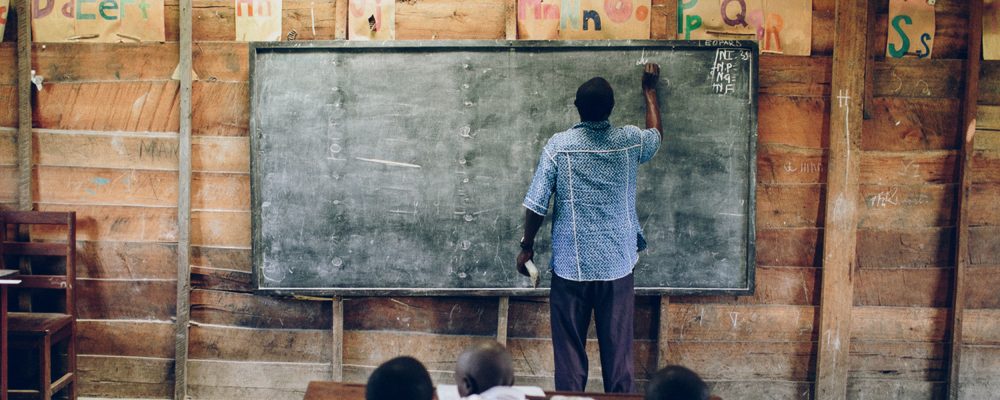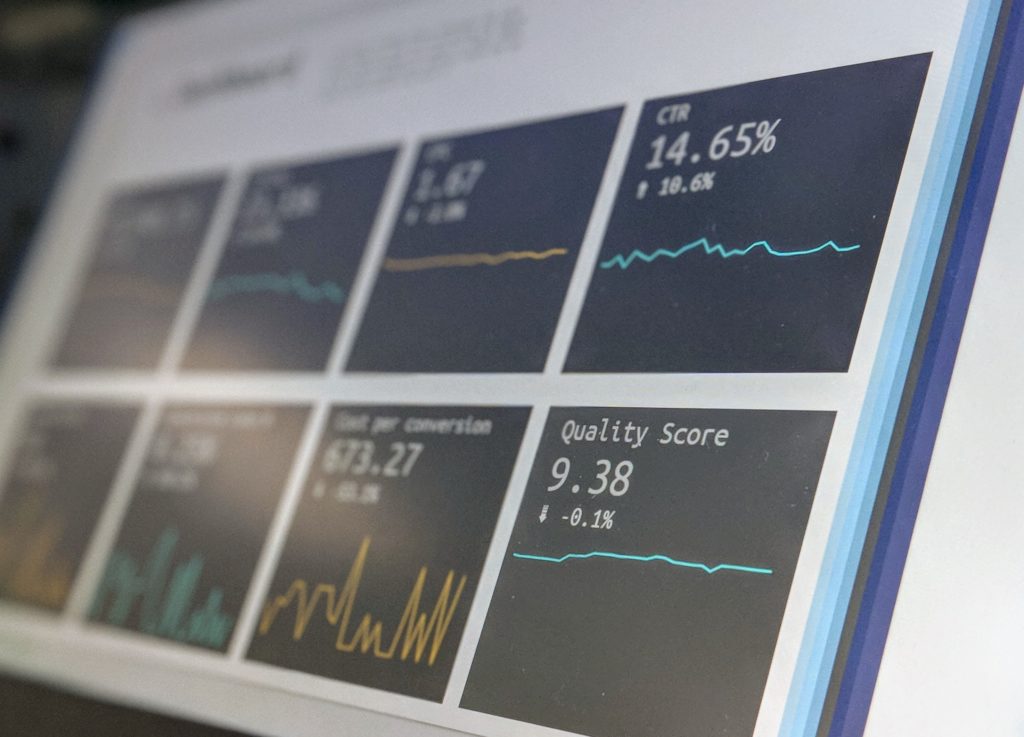A20. Education in the English language in Nigeria
POSTPONED until further notice
The context
The lack of accessible, quality education is a serious problem facing Africa. In Nigeria, many teenagers drop out of school before their 16th birthday. Sadly, due to the poor standard of teaching, even those who were privileged enough to attend school, often leave lacking basic literacy and numeracy skills. Illiteracy is one of the biggest challenge facing the youths of Nigeria and many parts of Africa. According to the Ministry of basic education in Nigeria, there is over 5000 students to one English teacher in the country. Unfortunately, the effort from the government to combat this problem is too limited to be able to solve the problem within the near future. Statistics shows that individuals at the lowest literacy and numeracy levels have a higher rate of unemployment and earn lower wages than the national average.
As a person who received poor education, I know what it means to be limited by education, says Elvis Austins, the founder and CEO of SpellAfrica. My inability to read and write held me from getting a decent job for many years.
Programme partner
The SpellAfrica Initiative is an Education-for-sustainable-development-organisation, founded by Elvis Austin, with a mission to improve the poor standard of education across Africa. SpellAfrica sincerely believe every person in Africa has the right to basic education. The ability to read, write and speak at an acceptable level is the first step towards eradicating poverty. SpellAfrica picture a Nigeria where every teenager and adult is able to Read, Write and Speak English, the official language of the country.
Value platform
We aim to work in equal partnership, where each partner and partner institution is contributing with their skills to achieve the goals and where input, responsability and benefits are shared equally. The programmes must be needs driven, in the sense that a local stakeholders brings the idea and is responsible for the implementation of the programme. We further aim for real-time evalation planning, sustainable economy, accountabiliity and evidence based impact.


achievements
SpellAfrica has introduces a variety of activities related to education in English, benefiting from radio and mobile phonse. 120 million people in Nigeria have access to a mobile phone.
Spell101 In 2012, SpellAfrica initiated a radio programme, Spell101, that taught proper English by spelling words. The programme was designed for youths, but the test run showed that adults were also interested. During the start-up phase the programme was run volunteer staff from the Benin University and the aim was to generate income through advert placement. But after three weeks, the programme was put on hold due to a sudden strike of the Academic staff union of universities (ASUU) in Nigeria. The academic strike lingered for almost six months. When school resumed the students were very busy trying to make up huge academic workloads that they did not attend to during the strike period. Thus, in 2014 it was decided to postpone the radio programme.
mVocabulary In January 2013, SpellAfrica introduced a simple technology solution known as the mVocabulary. mVocabulary utilizes SMS via cell phone to teach English vocabulary across Africa. Over 55,000 users have benefitted.
mVocabulary Exam In 2014 SpellAfrica carefully selected 50 people to join the new class of SpellAfrica mVocabulary. This class would receive an SMS message daily for 90days and will participate in monthly examinations, also via SMS. After the three months, all 50 beneficiaries will write a final exam. Successful candidates will be offered a certificate and eventually helped to get a blue collar job. Five employers signed in for the pact.
Mobile platforms In 2015, SpellAfrica started developing a volunteer teachers app.
Back2School In 2015 SpellAfrica also introduce a third pillar to address the problem of illiteracy in Nigeria. Parallel to radio and cell phone activites they set up physical school ad this Programme addresses adults that missed out from primary school. The Back2School Programme is a unique Adult illiteracy Programme designed using the Montessori methods. It intended to teach 200 adults and youths with little or no basic education, who operates small personal businesses. These 200, at the end of the programme, undergoes an assessment test conducted by Lagos State Agency for Mass, Non-Formal & Adult Education, to measure impact and approve them officially literate.
Strategy for Change
Context
65 million youths and adults in Nigeria are illiterate, which gives rise to extreme poverty.
Vision
Everyone in Nigeria is literate.
Target partners
- Adults that missed out from primary school and are illiterate.
- Adults and youths with little or no basic education, who operates small personal businesses.
- Teachers.
Ambition
To empower illiterate adults with literacy skills for an improved sustainable life.
Activities
Montessori classes: The teachers give 2 hours of teaching per day that is 10 hours a week. Teaching requires preparation and follow up, which can be expected to be as much time (or more) as the teaching itself. Then it becomes 20 hours per week, a 50 % employment.
Quality teaching requires quality teachers which require a reasonable reimbursement. The success of the project totally depends on our teaches and their effort. The teachers are the ones to ensure that the 200 students will manage their end of year exams.
Parallel enterprise: Production and sale of liquid soap.
Coaching: By HR&S Sweden and by HR&S team of local coaches.
Loan with 10% interest: ActionInvest loan of Euro 1,000.
Expected Output
Free evening classes every weekday, Mondays to Fridays, from 4 pm to 6 pm.
Nine months yearly session cycle, with four parallel classes.
Teach 200 adults and youths per year.
These 200, at the end of the programme, undergo an assessment test conducted by Lagos State Agency for Mass, Non-Formal & Adult Education, to measure impact and approve them officially literate.
Sensible business plan and venture.

Expected outcome
Transform the students to the point of accessing university education.
Students have access to economic and social development and come out of extreme poverty.
Sustainable economy.
Progress markers
- 200 students per year are approved officially literate according to Lagos State Agency for Mass, Non-Formal & Adult Education test and assessment.
- Cost are covered by sustainable income.
- Loan from Action10 is paid back with interest and in time.
Guarantee
If progress markers 1 and 2. is not reached after one year, then the programme manager has to give the reason and explain how the strategy is changed for this not to happen again.
If progress markers 3. is not reached after one year, then the loan and interest becomes a debt that must be paid back, before any new support can be considered. The loan is guaranteed by the community that will ensure the paying back, and this communty will have to sign the agreement.
Strategic partners
Local authoroties or civil society organisation that pay the cost of running a school.
Business model – September 2020
Size of loan
€ 1,000
Date: September 2020
Guarantee
A guarantee is a cooperative approach of operation, having two additional management positions to the Managing Director. They are Head of Production (HOP) and Head of Sales (HOS). Additionally, we have monthly meetings where reports are generated and presented at the end of the month to the loan-giver and parties.
Value proposition
Liquid soap. The income contributes to lowering the fee for education in English of adults.
Key Activities
- Vocational training of students and production of the liquid soap.
- Marketing and sales of the product.
Milestones
- Registration of the product (trademark and Nafdac registration).
- Production and sales of 700 bottles of literacy liquid soap.
Payback
The loans are paid back with a 10% annual interest. The amount to be paid back before 30/09/2021 is €1,100.
Expected impact
To empower the students with liquid soap production business opportunity and generate revenue for the SpellAfrica B2S Adult Literacy Project.

Coaching
Loantakers benefit from programme specific coaching; evaluation planning, survey management, accounting and branding & public relations, as well as external auditing. The loan-taker signs a separate coaching contract with the coaches, HR&S and Action10.
Business review
The RISE Nigeria team was uncertain about the prospect of the business.
The loan was not given and the collaboration is postponed until a more convincing business model is presented.
Impact survey 2020
THE IMPACT OF THE ADULT EDUCATION ACTIVITIES ON THE LIVELIHOODS OF STUDENTS
– SPELLAFRICA B2S ADULT LITERACY
Prepared by FAITH O. OHWOFASA, HR&S Survey Manager Coach. Survey performed 18 December 2020.
Objectives
The purpose of this survey is to evaluate the impact of the adult education activities on the livelihoods of students of the SpellAfrica B2S Adult Literacy.
Methodology
- The survey was carried out on site, and was done as one-to-one interview.
- Participants were chosen as those who happened to be around when during the evening when the interviewer visited the school.
These were students that have stayed long, including those who had graduated but still come around and also new students. - The sample size is too small:
- Five students of the SpellAfrica B2S Adult Literacy.
- Two Project Leaders.
- Participants were asked about their learning experiences at the SpellAfrica B2S Adult Literacy and how it has impacted them and has contributed to their financial intelligence.
- Since they are adult who seek literacy, questionnaires were interpreted to the respondents in their local language.
- The respondents were offered nothing in exchange for filling out the survey.
Results
The result of the survey is :
- Some of the five students interviewed had got improved livelihood as a result of the adult education.
- There is need to boost the efficiency of the programme.

Statement by the Manager
Erezi EDOREH: “The expected impact was to have these illiterate adults learn basic reading and writing skills in English language, to enable them do better in their small businesses, be employable and socially active in the society. This has been achieved over the years of participants. We managed financially through little funding support from private and organization donors, which enabled us to get little support for the teachers in the project. We had dedicated and passionate teachers who played important role in the project despite only little financial support. We also had dedicated students who were ready to learn despite the challenges of the poor funding in the project. What went wrong was the poor funding we had, which hindered a lot of learning activities. Also, the challenge of students struggling with family, financial and social needs, taking them sometimes away from the classroom. An unexpected outcome of the project is students who are willing to take examination into the university, they are three. Unexpected side-effects are a few of the female students, whose husbands are threatened with their educational progress. Lagos State Government provided free classroom for the project, Cimnet Hub provided IT materials and office space, GistVille Empire Concepts provides digital marketing assistance.”
Impact assessment 2020
The programme will be postponed until further notice. The reason being that it lacks a business plan that has potential to bring impact. The programme is 100% dependent on donations. In case the programme management presents a business plan that has potential to generate a sustainable economy, HR&S is willing to discuss again.
Impact assessment 2021
Due to the lack of self-sustainability, the programme is on hold, while HR&S and partners are identifying ways of generating sustainable income in parellel with the teaching, as the students to not ave own money to pay for the education with. We are exploring the opportunites with providing teaching in the English language as before, while in parallel provide teaching in family farming. The farming itself has potential to generate products that can be sold and ths generate income for the school. Moreover, the students will not only be equipped with good skills in the English language, but will also know how to kee a family farm.
Impact survey
Simple randomized evaluations
What is the appropriate level or unit of randomization?
What is the appropriate method of randomization?
How would we implement the randomization?
Study sample & control
Ensure ethical sound selections.
Study sample: Students – men and women, different ages.
Sample size: All students: 200 per year.
External validity:
i) Ensure that a person asked is representative of the group and that we would expect the same answer if we asked someone else.
ii) Reflect over if the results of our randomized evaluations is generalizable to other contexts.
Control: Who, where, how many?
Reflections on ethically sound selections
Without denying access: It can be possible to conduct a randomized evaluation without denying access to the intervention. For example, we could randomly select people to receive encouragement to enrol without denying any interested participants access to the intervention.
Two versions of an intervention
It may be useful to compare two different versions of an intervention, such as an existing version and a version with a new component added.
Quantitative analysis – Statistical method
Basic statistics: The basic assumption to be made is that a set of data, obtained under the same conditions, has a normal or Gaussian distribution. The primary parameters used are the mean (or average) and the standard deviation, and the main tools F-test for precision, t-Tests for bias, Linear correlation and regression and Analysis of variance (ANOVA).
Simple comparison: With randomized evaluations, the simplest method is to measure the average outcome of the targeted group and compare it to the average outcome of the control group. The difference represents the programme’s impact. To determine whether this impact is statistically significant, one can test the equality of means, using a simple t-test. One of the many benefits of randomized evaluations is that the impact can be measured without advanced statistical techniques.
Propagation of errors: The final result of a Programme is calculated from several activities (outputs) performed during the implementation and the total error in a programme is an adding-up of the sub-errors made in the various steps. The bias and precision of the whole Programme are usually relevant parameters.
Qualitative assessment – probability methods
With qualitative assessments, and contrary to statistical methods, the quality of the evidence is not judged by the sample size (the number of observations) but rather the probability of observing certain pieces of evidence. Qualitative impact evaluation includes assessing the contribution made by a particular intervention in achieving one or more outcomes, commonly referred to as a ‘contribution claim’. TestE benefits from process tracing to assess our Strategy for Change and from Contribution tracing to examine the contribution by external stakeholders . We also address Team operations, Cost-benefit, Needs driven, Equal partnership and Unexpected effects.

Micro data survey questions
Quantitative surveys
- Progress markers
- Base-line
- Financial outcome
- Other
Qualitative surveys
Use semi-structured questions.
- Testimonies
- Strategy for Change
- Milestone achievements
- Cost- benefit
- Team operations
- Needs and user driven achievements
- Equal partnership achievements
- Unexpected and/or not-targeted effects
- Other.
Micro data Survey manual
- Number of interactions, where, when by whom.
Standardised questionnaires, questionnaire survey conducted by peer stakeholders, participatory focus group discussions, testimonies, life story interviews, participatory videos and photos etc. - Who to interact with.
- Semi-structured interview guide.
- Survey questions.
- Other issues.
Assign the data collection team
On-site interactions
Ensure water-tight communication with our repondents. Interview after interview, community after community, the exercise shall progress smoothly and a lot of interesting evidence – videos, photos, documents, recordings, etc. – shall be gathered. At the end of a data collection exercise, it will be obvious that a data collection team has learned several lessons.
